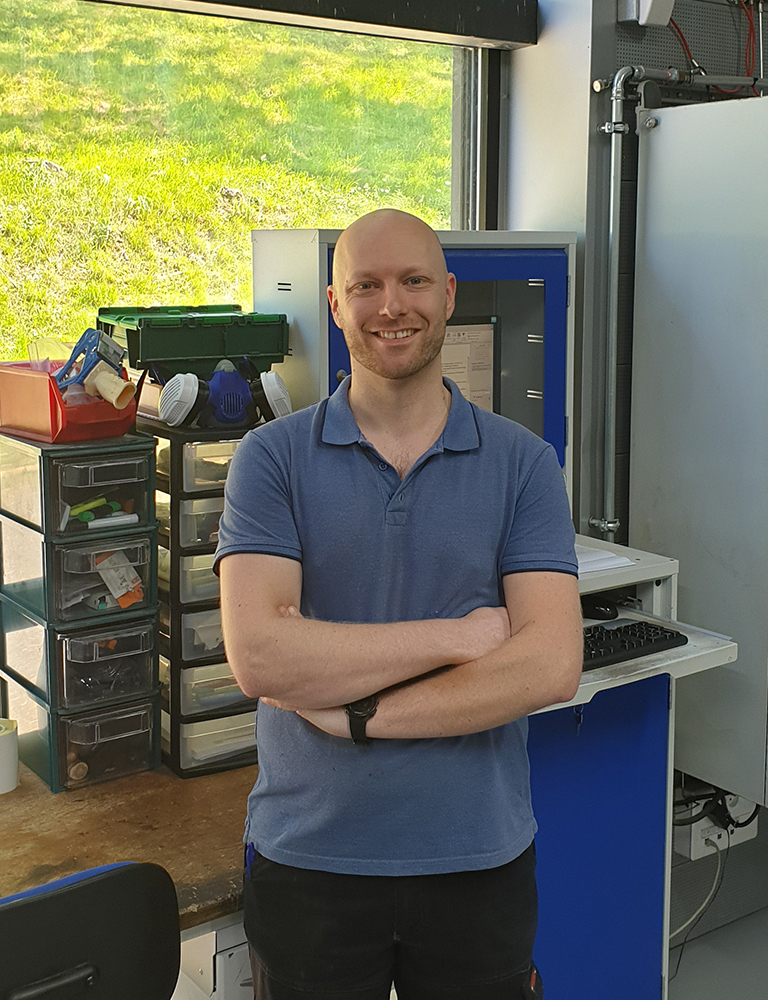Are you sure you want to perform this action?
"Opinel is all about tradition looking to the future."
Today, we are delighted to introduce Sébastien Guicherd, a trainer in the varnishing workshop.

Can you introduce yourself in a few words?
My name is Sébastien Guicherd. I am a qualified boilermaker. I was given the opportunity to work at Opinel about 4 years ago when I was a temp. I started off working in the wood workshop for a few months, until I was offered a position in the varnishing workshop. I've been working in this workshop for just over three years now; I started as an operator and now I'm a trainer.
What does your job in the varnishing workshop entail?
I pass on my expertise to several operators. I plan the production schedules depending on requirements, and produce stained and varnished handles. This involves placing the shaped handles into rotating barrels, and adding stain and varnish according to various different procedures depending on the types of wood or colours. You need to have a feel for the amounts and cycle times, and adjust them by eye. Once the handles are dry, we check the quality against model handles. These have been made with specific wood types and colours, enabling us to check whether the result complies with the expected level of quality. They are then sent to the assembly workshop.
We also carry out tests. We carry out these tests on new types of wood because the dosages differ depending on the specific level of impregnability for each wood type. As well as on new colours.
How long does the varnishing stage take?
For types of wood with a colourless finish, the varnishing stage takes an hour and a half - sometimes longer if the dosage needs to be adjusted during the cycle - followed by two days of drying.
For colours, there is an initial staining stage which may vary in length depending on the appearance of the handles, followed by three days of drying. They are then varnished for an hour and a half before being left to dry again for two days.
Can you sum up your job in just one word?
I would say rigorousness, as the role calls for high levels of autonomy and organisation. You need to be able to plan your day wisely. Being able to make quick decisions is crucial in this job to avoid any dips in quality. Each step must be carried out rigorously to achieve the required result.
Which aspects of your job do you like best?
Carrying out tests. It's a way to evaluate your procedures, always striving to improve quality. I like carrying out tests with dosages, for example. You need to try and achieve the best possible result.
What values would you say that the company holds?
Before working at Opinel, I thought about what the company meant to me. I'm from the Savoie region, so I'm really proud to work for this local company. It represents tradition and expertise. Since I've been working for the company, I have noticed that we are very future-facing in terms of processes and machines. It's all about tradition looking to the future.
How did your friends and family react when you told them you were going to work at Opinel?
They were fascinated, they're always asking me questions about it, it's a topic of conversation around the family dinner table.
Which is your favourite Opinel knife?
The No. 08 Ellipse. It's a fairly personal choice. It is made from wood and aluminium, and these are the two materials I have worked with the most in my professional career, especially when I was a zinc roofer. It represents my experience.








